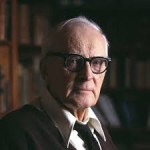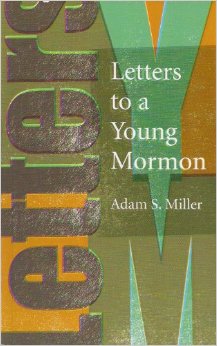The Neal A. Maxwell Institute for Religious Scholarship has recently hired my good friend Blair Hodges as their public communications specialist. I am excited for both the Maxwell Institute and Blair.
Blair was kind enough to answer a few questions for Approaching Justice. All links below were added by Approaching Justice.
Approaching Justice:What will you be doing for the institute in this capacity?

(Photo from By Common Consent)
Blair: Thanks! I’m the new public communications specialist. I’ll be managing the Institute’s new website, forthcoming later this year. I’ll be blogging and doing other social media stuff, assisting in digital product development, helping to research and edit various Mormon studies publications. My job is sort of grab-bag, that’s why I like it.
(Note: See the new Maxwell Institute Twitter feed here.)
Approaching Justice: Have you been involved with The Maxwell Institute before?
Blair: My first published book review appeared in the FARMS Review a few years ago before I earned my bachelor’s. I was also a participant in the Bushman/Givens Summer Seminar a few years ago, which was held in the Maxwell Institute building. They were aware of me through the book reviews I’ve published in Dialogue, Journal of Mormon History and the reviews at posts on my old solo blog, lifeongoldplates, then faithpromotingrumor, now bycommonconsent.
Approaching Justice: What does your position, a new position, tell us about the direction and future of the Maxwell Institute?
Blair: My initial interest in taking a more academic approach to my religion came about in part because of FARMS, which later became the Maxwell Institute. So I bring a familiarity with a lot of our back catalog to the table which people at the Institute were aware of. One goal I have is to highlight some of the best of our past work, to revisit some of the articles and books we’ve done, even as we continue to move forward with new projects. I think my new position says that the Institute wants to have a more active web presence. Blogging, audio/visual, Facebook and Twitter, we want to make better use of social media to let people know what we’re putting together. My undergraduate degree was in mass communications and my master’s is in religious studies, so I have an interesting background, a good fit for what the Institute needed. We’re still playing a few things close to the chest right now as we get situated, but I’m excited about what I’ve seen so far.
Approaching Justice: You are finishing up a masters at Georgetown, could you tell us a bit about your thesis?
Blair: My topic is intellectual disability in Mormon thought and history from 1830 to the turn of the century. I’m looking at different ways Mormons have approached the place of disabled people in the developing schema of the Mormon “plan of salvation.” Things start off pretty basic; people with such disabilities are lumped together with unaccountable children, outside of the requirements of God’s commands. But as the plan of salvation gets tied more closely to the metaphor of family (children of God, etc.), people with disabilities slip further off the radar screen. Mormons argued that we would essentially eliminate disability through obeying God’s laws (chiefly, polygamy) while critics said plural marriage would produce a degenerating race of feeble minds. That contest lasted the rest of the 1800s and ensured that disability would remain a marker of inferiority, and thus not an object of pastoral attention in the Church’s official publications or programs. There’s more to it than this, of course, but one of the most important take-aways is probably the fact that Mormons didn’t get an explicit theological account of disabilities from Joseph Smith or the leaders who succeeded him, so the theological options aren’t set in stone when it comes to intellectual disability.
Approaching Justice: What other side-projects are you working on that you would like to share with the readers of Approaching Justice?
Blair: I’m basically working on the thesis every free chance I get while doing Institute stuff the rest of the time. My wife Kristen and I also just had our first baby who has taken up a lot of time. We both work (she teaches Russian at the University of Utah) so we’re still learning how to juggle all the duties a kid brings to the mix. I’m also playing a role in a film called “Heart of Africa,” by Margaret Blair Young of BYU. She did the documentary on black Mormons called “Nobody Knows,” and now she’s doing this film about a former Congolese revolutionary and a kid from Idaho who become mission companions. Thanks for the questions!











